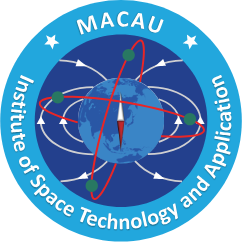Royal Astronomical Society Discussion Meeting
GEOMAGNETIC TWIN SATELLITES MSS-1 AND THE SOUTH ATLANTIC ANOMALY: INITIAL RESULTS AND FUTURE PLANS
The Date and place:
Friday 13th October 2023, Burlington House, Regent Street, London
The description of the RAS meeting:
The Macau Science Satellite-1 mission (MSS-1) was successfully launched on 21 May 2023 into a nearly circular low-latitude orbit at an altitude of 500 km. It takes a twin-satellite approach with Satellite A carrying a payload of high-precision magnetometers to accurately measure Earth's magnetic field while Satellite B is equipped with other sensors such as a solar X-ray instrument to obtain space environmental data.
The planned Macau Science Satellite-2 mission (MSS-2) is intended to form a constellation with MSS-1. Two further geomagnetic satellites will be placed in near-polar but strongly eccentric orbits with a perigee around 200 km and apogee about 5000 km. This will allow a very dense spatial and temporal magnetic coverage to be achieved.
The primary purposes of the Royal Astronomical Society Discussion Meeting are: (1) to report on initial results from the MSS-1; (2) to discuss future plans for related research and collaboration with the international community; (3) to provide scientific and technical suggestions for the MSS-2 mission; and (4) to discuss integration with SWARM and the international community.
Final Programme of the RAS meeting:
10:30 Welcome
Mission overview and instrumentation
10:35 - 11:50 Overview of MSS-1 and MSS-2: Keke Zhang (MISTA, Macau)
10:50 - 11.05 MSS-1 Satellite System Design(In-flight calibration and validation of the Macao Scientific Satellite magnetic data): Shigeng Yuan (DFH, China) and Yi Jiang (MISTA, Macau)
11.05 - 11:20 In-orbit testing/calibration of the scalar magnetometer: Werner Magnes, (Austrian Academy of Sciences, Austria)
11:20 - 11:35 In-orbit testing/calibration of the vector magnetometer and star cameras: Peter Brauer (DTU, Denmark) and Troelz Denver (DTU, Denmark)
Initial Results of MSS-1
11:35 - 11:50 A CHAOS-like model with an empirical space current system: Kuan Li (MISTA, Macau)
11:50 - 12:05 Mantle conductivity and tide induced signals: Zhengyong Ren (Central South University, China)
12:05 - 12:20 Ionospheric Irregularities and Scintillation at Equatorial and Low Latitudes: Zhe Yang(Tongji University, China)
12:20 - 12:35 Energetic electron dynamics in the radiation belt/SAA: Qiugang Zong (Peking University, China)
12:35 - 12:50 Reconstruction of 3-D Core Flow: Yufeng Lin (Southern University of Science and Technology, China)
12:50 - 14:00 lunch
Wider context: Swarm and future missions
14:00 - 14:15 Synergies between Swarm and MSS-1: programmatics Anja Stromme (ESA)
14:15 - 14:30 Synergies between Swarm and MSS-1: scientific opportunities Nils Olsen (DTU, Denmark)
14:30 - 14:45 3-D global mantle conductivity models derived from satellite measurements of geomagnetic field variations Jakub Velimsky (Charles University, Czech Republic)
14:45 - 15:00 Waves in the core from satellite data : Nicolas Gillet (ISTerre, France)
15:00 - 15:15 The core-mantle boundary magnetic field and opportunities with MSS-1: Chris Finlay (DTU, Denmark)
15:15 - 15:35 Discussion about MSS-2
Dinner and reception
4:00 - 5:00 Museum opens at the Royal Institution for dinner guests
5:00 - 6:30 Drinks reception at the Royal Institution with scientific discussions
6:30 - 8:30 Dinner




